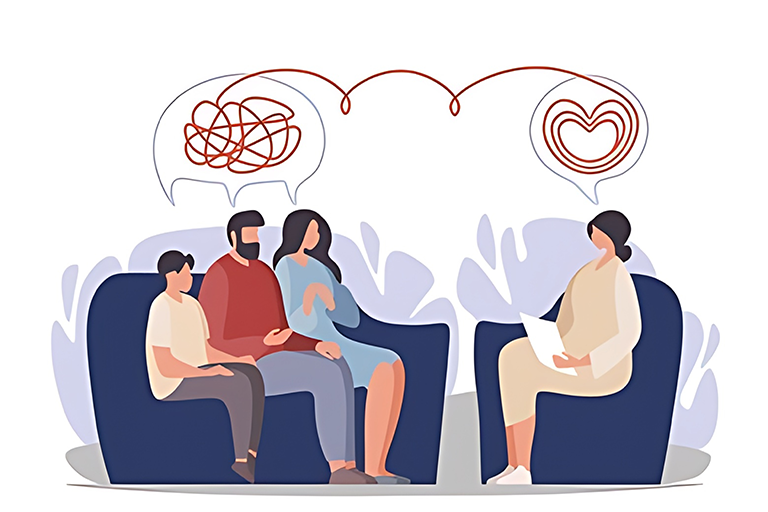Understanding the Role of a Confidant in Your Life
Introduction
In the complex tapestry of human relationships, one thread stands out as both essential and profoundly impactful: the role of a confidant. A confidant is more than just a friend; they are a trusted companion with whom you can share your deepest thoughts, emotions, and experiences. The bond with a confidant goes beyond mere friendship—it is a sanctuary for vulnerability, a wellspring of support, and a crucial component of mental and emotional well-being. In this article, we will delve into the role of a confidant in your life, exploring its significance, benefits, and how to nurture and maintain these precious relationships.
The Essence of a Confidant
A confidant, often referred to as a confidante, is a person with whom you share your most intimate thoughts, feelings, and experiences. They are your trusted partner in vulnerability, offering a safe space for you to express your innermost concerns without judgment or fear of repercussions. The relationship with a confidant is characterized by mutual trust, empathy, and confidentiality.
A confidant may be a close friend, family member, or even a therapist or counselor. What sets them apart from other relationships is their ability to provide unwavering support and understanding, even in the face of your deepest fears and insecurities. The role of a confidant is not limited to lending a listening ear; they also offer valuable insights, perspective, and emotional validation.
The Significance of a Confidant
Emotional Outlet:
A confidant serves as a vital emotional outlet. When you’re overwhelmed by strong emotions, whether it’s sadness, anger, or anxiety, having someone you trust to confide in can provide immense relief. This emotional release can prevent the buildup of stress and improve your mental well-being.
Reduced Loneliness:
Loneliness can be a pervasive and debilitating feeling, even in the midst of a crowd. A confidant offers companionship and the reassurance that you’re not alone in your struggles. This connection can significantly reduce feelings of isolation.
Stress Reduction:
Sharing your worries and problems with a confidant can help alleviate stress. The act of verbalizing your concerns can make them seem more manageable, and your confidant may offer support and suggestions for coping.
Enhanced Mental Health:
Studies have shown that having a confidant is associated with better mental health outcomes. It can be a protective factor against depression, anxiety, and other mental health challenges.
Improved Decision-Making:
Discussing important decisions with a confidant can provide clarity and perspective. They can offer valuable insights, challenge your assumptions, and help you make informed choices.
Emotional Validation:
Feeling heard and understood by a confidant can be profoundly validating. It reinforces your self-worth and provides affirmation of your feelings and experiences.
A Trusted Advisor:
A confidant often plays the role of a trusted advisor. They offer guidance, empathy, and wisdom gained from their own experiences. Their advice can be invaluable when facing difficult decisions or dilemmas.
Strengthened Relationships:
Sharing your thoughts and emotions with a confidant can deepen your connection with them. The trust and vulnerability in this relationship create a strong bond that can withstand the tests of time.

Finding a Confidant
Identifying and nurturing a confidant-worthy relationship is a profoundly personal journey. Here are some steps to help you find or strengthen this critical connection:
Assess Current Relationships:
Reflect on your existing relationships. Is there someone you feel comfortable confiding in? This could be a close friend, a family member, or even a therapist. Consider the depth of trust and openness in these relationships.
Open Communication:
To establish or deepen a confidant relationship, open and honest communication is key. Express your desire for a deeper connection and let the other person know that you value their support and trustworthiness.
Mutual Trust:
Building trust is a two-way street. Be reliable, consistent, and respectful in your interactions with the potential confidant. Trust is cultivated over time through shared experiences and mutual vulnerability.
Embrace Vulnerability:
Vulnerability is the foundation of a confidant relationship. Share your thoughts and feelings authentically, even if they make you feel exposed. A true confidant will reciprocate this vulnerability.
Respect Boundaries:
While confidant relationships involve sharing deeply personal experiences, it’s essential to respect boundaries. Avoid pressuring the other person to share more than they are comfortable with.
Seek Professional Help:
In some cases, a therapist or counselor can serve as a valuable confidant. They are trained to provide support, guidance, and confidentiality in a therapeutic setting.

Maintaining a Confidant Relationship
Once you’ve identified or deepened a confidant relationship, it’s essential to nurture and maintain it. Here are some strategies for doing so:
Regular Communication:
Stay in touch with your confidant regularly, even if it’s just a brief check-in. Consistent communication strengthens the bond and ensures that you’re available to support each other when needed.
Active Listening:
Practice active listening when your confidant shares their thoughts and feelings. Offer empathy, ask open-ended questions, and avoid interrupting. Make them feel heard and valued.
Mutual Support:
A confidant relationship is a two-way street. Offer your support and empathy when your confidant needs it, just as they do for you. Be there for each other during both highs and lows.
Respect Confidentiality:
Honor the trust and confidentiality of the relationship. Avoid sharing personal information or experiences discussed in confidence with others without explicit permission.
Express Gratitude:
Take time to express your gratitude and appreciation for your confidant. Let them know how much their presence and support mean to you.
Resolve Conflicts:
Conflicts and disagreements may arise in any relationship. When they do, address them openly and respectfully. Effective communication is essential for resolving issues and maintaining trust.
Celebrate Milestones:
Celebrate important milestones and achievements in each other’s lives. Sharing in moments of joy and success can strengthen your bond.
Conclusion
The role of a confidant in your life is a treasure to be cherished and nurtured. This trusted relationship serves as a sanctuary for vulnerability, emotional support, and companionship. A confidant is more than just a friend; they are a pillar of strength during life’s challenges and a source of joy during moments of celebration.
Understanding the significance of a confidant in your life allows you to appreciate the value of this relationship fully. Whether you are seeking to establish a confidant relationship or deepen an existing one, remember that trust, vulnerability, and open communication are the cornerstones of this special bond. By embracing the role of a confidant in your life, you can navigate the complexities of the human experience with greater resilience, empathy, and connection.
Learn more: Mental Health Awareness
& Know about Your Confidant
Shruti Dua, Mental Health Blogger, YOUR Confidant





